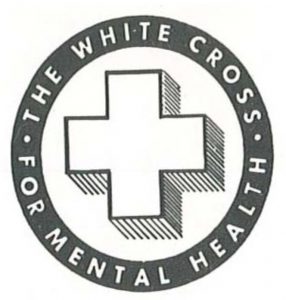CMHA White Cross Centres Exhibit
By Jayne Melville Whyte, B.A., Independent Researcher
 Beginning in the 1950s, Saskatchewan was the first Canadian province to implement deinstitutionalization. The Saskatchewan division of the Canadian Mental Health Association (CMHA) played an important role in this. The CMHA, which had a history of advocating for improvements in the conditions of mental hospitals, now stepped forward to take on the role of providing community resources for mental health clients.
Beginning in the 1950s, Saskatchewan was the first Canadian province to implement deinstitutionalization. The Saskatchewan division of the Canadian Mental Health Association (CMHA) played an important role in this. The CMHA, which had a history of advocating for improvements in the conditions of mental hospitals, now stepped forward to take on the role of providing community resources for mental health clients.
Assuming that discharged patients would be fully integrated into the community as employed people with active social lives, CMHA Saskatchewan developed a pilot project for rehabilitation services in the mid-1950s. Called White Cross Centres, these local facilities aimed to integrate patients into the community and help them relearn skills for daily living. Yet right from the start, support services were scaled back in a misguided push for economy. As was the case across Canada, a limited notion of the concept of rehabilitation and insufficient resources undermined the possibility of successful community living.
The funds saved as the large hospitals closed were not reinvested in the people who lived with mental illness, their families, community mental health services and non-profit organizations like CMHA in ways that empowered full citizenship and human rights.
This exhibit is based on a chapter from Pivot Points: A Fragmented History of Mental Health in Saskatchewan published by CMHA Saskatchewan (2012). The author has needed the community mental health system for most of her life. This may be your story too.
